Is Peter Malinauskas our future prime minister?
He leads a state long regarded as the kind of rustbelt backwater where you wouldn’t dispatch your worst enemy for a holiday and would need rocks in your head to invest. It’s now the place to be. What could Peter Malinauskas do for the nation?
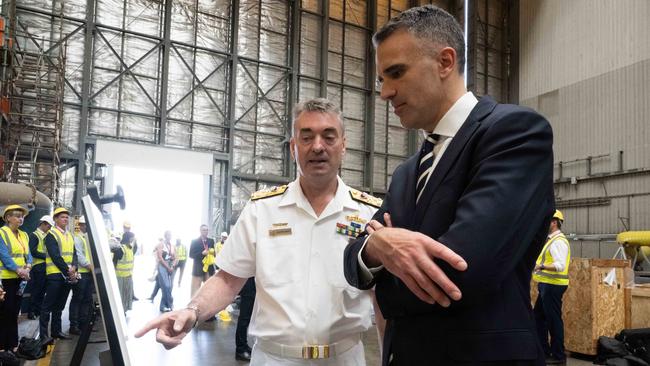
at Osborne shipyard in November 2023. Picture: NCA NewsWire/Morgan Sette
Peter Malinauskas has no reason to be paranoid. That, he says, is the thing that worries him.
Becoming South Australian Premier less than three years ago, the 44-year-old already is the longest serving political leader in Australia. Amid political upheavals in other states and uncertainty nationally, Malinauskas looks unassailable as Premier and has ended 2024 on a high.
He has established himself as a national figure leading the charge on social media age limits to protect children online and with his impassioned support for gas and qualified advocacy of nuclear power.
He has seen off not one but two former SA Liberal leaders in historic by-election wins. It had been almost 120 years since a South Australian government claimed a seat from an opposition at a by-election; this year it happened twice.
Labor first claimed the seat of former premier Steven Marshall before snaring the seat of Marshall’s successor, David Speirs, last month. The unusual added distraction of Speirs facing drug charges underscored the chaos on the Liberal side, where for new leader Vincent Tarzia 2024 can’t end quickly enough as he battles to get his party to focus.
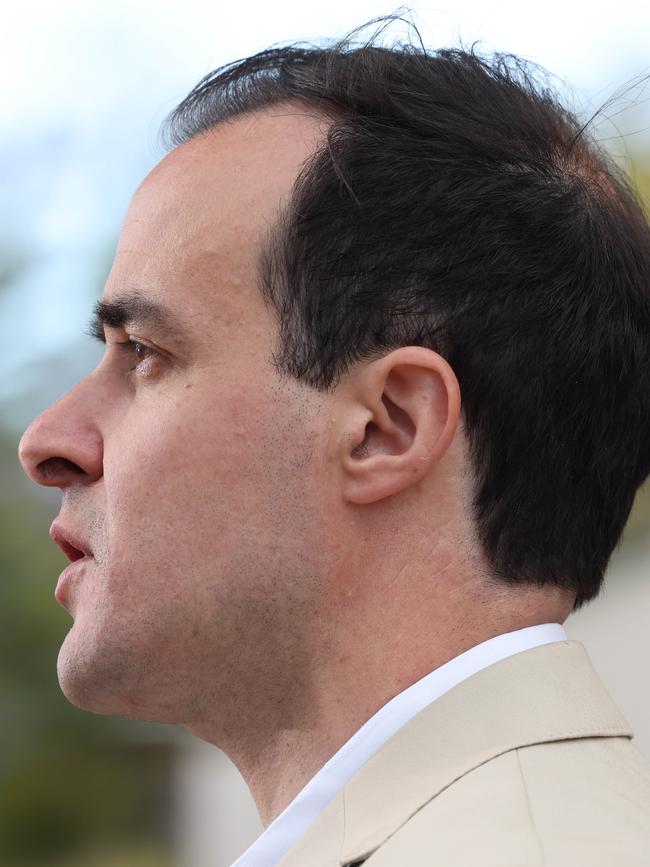
Malinauskas leads a state long regarded as the kind of rustbelt backwater where you wouldn’t dispatch your worst enemy for a holiday and would need rocks in your head to invest.
With the contextual bonus of neighbouring the economically failed state of Victoria, SA now looks like the place to be. Its hoteliers, winemakers and restaurateurs are cheering Malinauskas for the AFL’s Gather Round and LIV Golf, its citizenry feels a new sense of state pride, and even the Business Council of Australia declared this month that it’s the best low-taxing jurisdiction to do business anywhere in Australia.
There are significant challenges Malinauskas faces: his abject failure to honour his key 2022 South Australian state election promise on ambulance ramping; higher than average power bills in the state most reliant on renewables; a crisis in police recruitment; and worrying budget borrowings to fund a new hospital and a major city road upgrade.
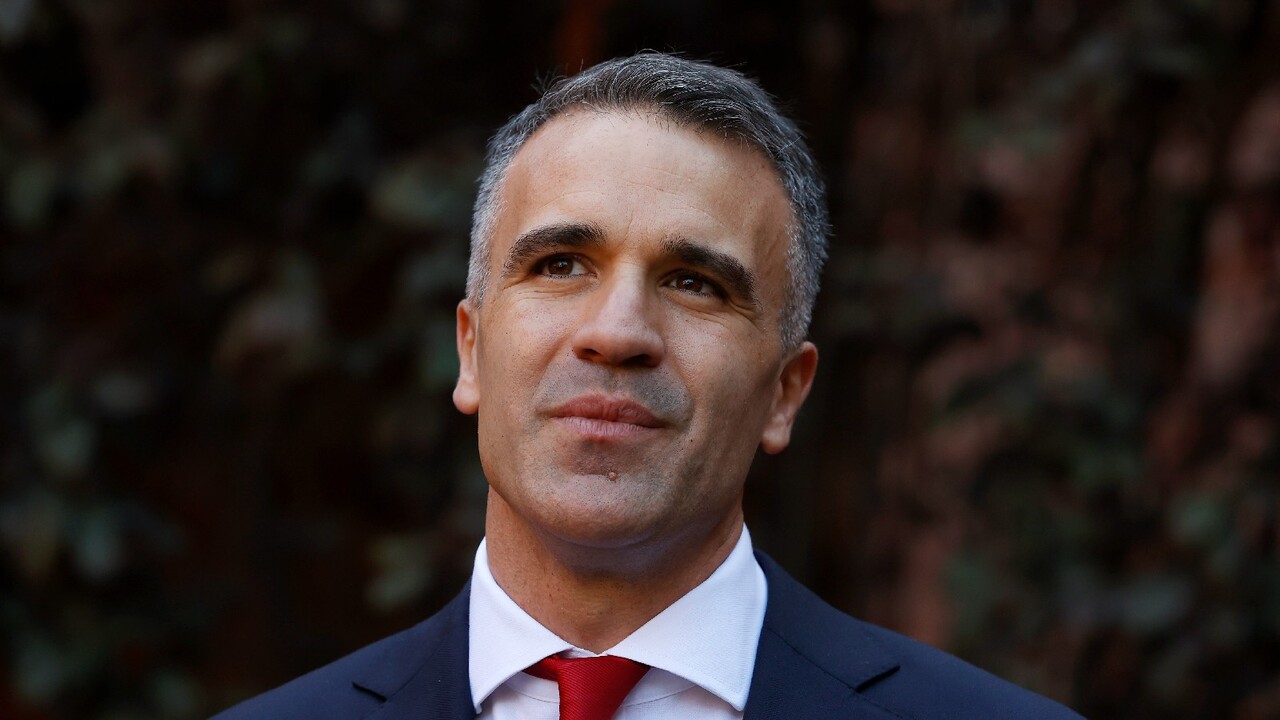
None of that is translating into anything that’s even close to a political headache for Malinauskas, with the two by-election wins suggesting he is probably the most popular politician in the nation right now.
Malinauskas tells Inquirer he has no interest in any of that. He says voters regard the first sign of arrogance as a termination slip for politicians, and that politics is littered with the remains of people who thought they were universally loved until they weren’t. “There is a quote to live by from Andy Grove”, the former long-time chief executive and driving force at Intel, Malinauskas tells Inquirer.
“Success breeds complacency, complacency leads to defeat, only the paranoid survive. Grove said it in the context of business but it’s way more applicable to politics.
“The other saying I got from footy. Things are never as bad as they seem but they’re never as good as they seem, either.
“I have not enjoyed the breadth of experience of others in politics but I have seen enough to know that a bit of paranoia doesn’t hurt.”
In the international context, the easy and expanding consolidation of power by the Malinauskas government is at odds with the prevailing orthodoxies in liberal democracies right now – that incumbency is a curse during a cost-of-living squeeze and that politics is moving away from the centre.
As a lifelong Right faction member, Malinauskas spends less time talking about being a Labor premier than he does about being a premier of the centre who wants to govern for businesses and families.
He hails the victory on social media age limits as “absolutely” an example of governing from the centre, where he equally lauds the work of both Anthony Albanese and Peter Dutton in embracing the idea in a bipartisan way. “First and foremost it’s a win for parents and kids,” he says.
“That’s the main game. And that’s where most parents are at, they are in the political centre.
“When the Greens came out and said they were going to oppose it, I thought: ‘Oh here we go’. Then the far right came out and opposed it on libertarian grounds. So to have the centre of politics, the parties of government, working together to deliver this outcome, I say bravo.
“This is something parents are really worried about. That YouGov poll said 77 per cent of Australians support it. If you couldn’t get the political centre working together on this it’s hard to work out what you could get it working on.” The social media push became a national issue after Malinauskas partnered with NSW Premier Chris Minns to get the Prime Minister’s attention and support.
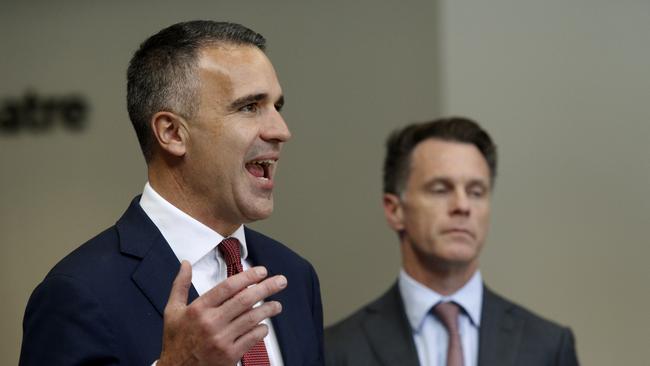
In the course of this interview, Malinauskas makes it clear he will continue to speak on any issue he sees as pivotal, not only to South Australia’s interest but also the national interest.
He is openly scathing about the policies of federal Labor and the Coalition on international student caps, saying rolling back numbers will hurt the economy, threaten research and development funding, and jeopardise skills needed to fulfil the AUKUS contract. He alludes to past policy outrages such as Kevin Rudd’s sudden declaration of a mining “super profits” tax and wonders why more fuss isn’t being made about this bipartisan threat to a $47bn export industry.
“If this was any other sector there would be advertisements on TV ad nauseam attacking federal politics for curtailing an industry that’s so important to the country,” he says. “I would much prefer to see a more rational policy discussion around the role that international students have to play, rather than one fuelled by a political dynamic.”
Even on the cusp of a federal election where nuclear power is a key policy battleground, Malinauskas remains as candid as ever on what for many in Labor is a taboo.
When federal Labor ministers are tweeting cartoon images of seven-eyed fish and claiming the Opposition Leader will put reactors in people’s backyards, Malinauskas accuses the left of ignoring the science on nuclear, saying the only remaining argument against it is an economic one. He takes aims at the Greens and some on the left of his own party for their hostility towards gas, saying it is essential to deliver renewables.
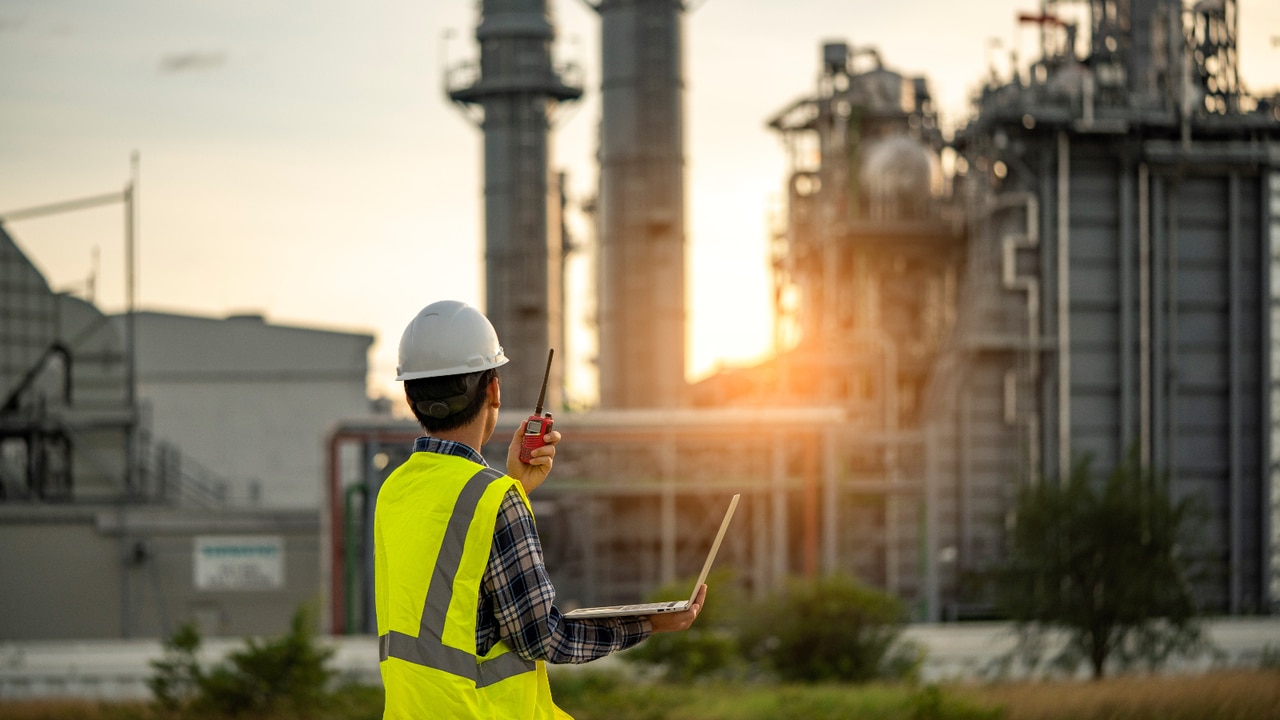
But he derides right-wingers for refusing to believe that renewables will ever be able to provide reliable and affordable baseload power, provided they still have the capacity to be supported by gas and, he hopes, hydrogen.
“You have got the far right who are critical of renewables and the far left who are critical of gas and don’t like nuclear,” Malinauskas says. “I enjoy debating with the far right about the role of renewables in the future just as much as I enjoy debating with greenies about the essential need for gas to unlock renewables. “It’s just crazy. As a nation we have not put enough effort into gas.
“Any enthusiastic backer of renewables has no choice but to acknowledge you need firming capacity that sits alongside it. It has been the South Australian government’s consistent view that this is best done by gas generation. It’s that simple.
“On nuclear, I think Australia contributing to the nuclear supply chain is inevitable. I think it’s a good thing. South Australia is home to one of the highest quality uranium deposits anywhere in the world. What should dictate the future of nuclear power in Australia is the economics of it. That’s been my view forever.
“The right of the political spectrum does itself a disservice by ignoring the economics and the left does itself a disservice by ignoring the science.”
With the next state election scheduled in 2026, Malinauskas says his key priority is pushing ahead with the training and skills agenda required to satisfy the AUKUS contract, of which he is obviously a huge backer.
He says the work towards that end is “more advanced than people might think”, with new training places already being filled through TAFE and at relaunched technical colleges, and 1000 federal-funded university places for defence-oriented careers.
He is laid-back about what others see as the two biggest threats to AUKUS: the possibility of an insular, America First Donald Trump presidency; and the cost and logistically based criticisms of influential domestic figures such as former foreign minister Alexander Downer. “I see all these articles and read all the speculation but it tends not to be borne out in fact,” Malinauskas says.
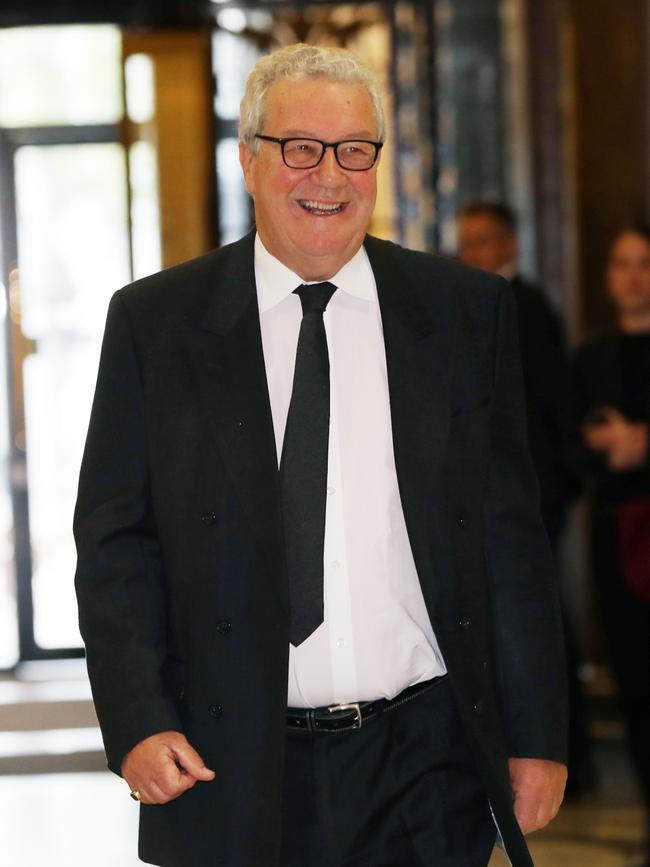
“The Trump question ignores the basic fact that AUKUS is a policy that’s seen a massive uplift between Australia and the UK as major allies of the United States in defence expenditure. And that is precisely what Trump was advocating throughout the entirety of his first term as president.
“The Trump doctrine was that the West can’t just sit and rely upon the US. They have got to do their fair share of the heavy lifting as well, which is quite a reasonable position when you think about it. Well, AUKUS is a manifestation of that desire.
“As for Alexander Downer, he’s a formidable Australian and as our longest standing foreign minister someone whom I have regard for. But the problem with the Downer analysis is that Australia should buy submarines from elsewhere. Now, that would be fine as a proposition if it was even possible. This is what they forget.
“Does Australia need a submarine capability as an island continent? Everybody agrees yes. But then the question becomes where do we get that capability from. Downer says we can buy them off the shelf.
“The problem with that is none of our allies is selling because they can’t produce enough submarines now to meet their own needs.
“If someone hypothetically said AUKUS finishes tomorrow, there is no one that we would be able to buy a nuclear submarine capacity from. No one is selling. So we have got no choice if we actually want this platform to be able to build it ourselves – let alone the fact that we probably should anyway. We are trying to prepare our nation’s defence over a multi-decade-long time horizon. It’s very hard to predict what the world will look like in two years, let alone 20. Having this capability sets ourselves up for the long term, to protect ourselves for the long term, which strikes me as a prudent policy.”
On the question of his own future, Malinauskas says it would be wrong for anyone to interpret his pursuit of social media limits or his thoughts on energy reform as some launch pad into federal politics.
He continues to be the subject of significant speculation about a move to Canberra. Much of that discussion comes from the business community in SA, where he has good relationships with all the key industry groups and the vast bulk of the state’s senior executives.
But in a profession that invites contrast, Malinauskas draws favourable acclaim nationally when set against all of his federal Labor equivalents and the dilapidated Labor teams in Victoria and Queensland.
His commitment to his family is a key obstacle to a Canberra shift. Neither he nor (especially) his lawyer wife Annabel has any interest in him being away 22 weeks a year when they have four young children. But the speculation continues, much of it in the form of wishful thinking among Labor’s current federal drift.
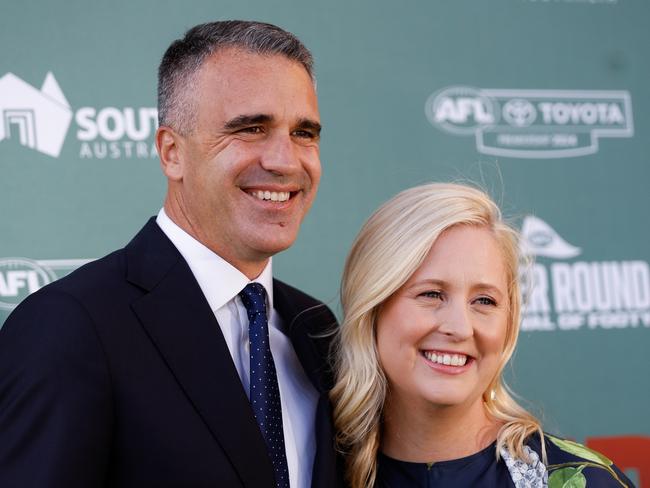
It involves Malinauskas not being a future federal Labor minister but a possible prime minister. He insists he has never even thought about what it would be like to be the prime minister of Australia. “No,” is his blunt reply.
“There is oodles of talent in federal parliament and a long list of people who covet that role and who reasonably should. That’s a good thing for the country. I have got an amazing opportunity to take a state that has had its challenges but is now realising all these opportunities that lie before it. I believe that those opportunities are real.
“That’s what I want to focus on.”


To join the conversation, please log in. Don't have an account? Register
Join the conversation, you are commenting as Logout